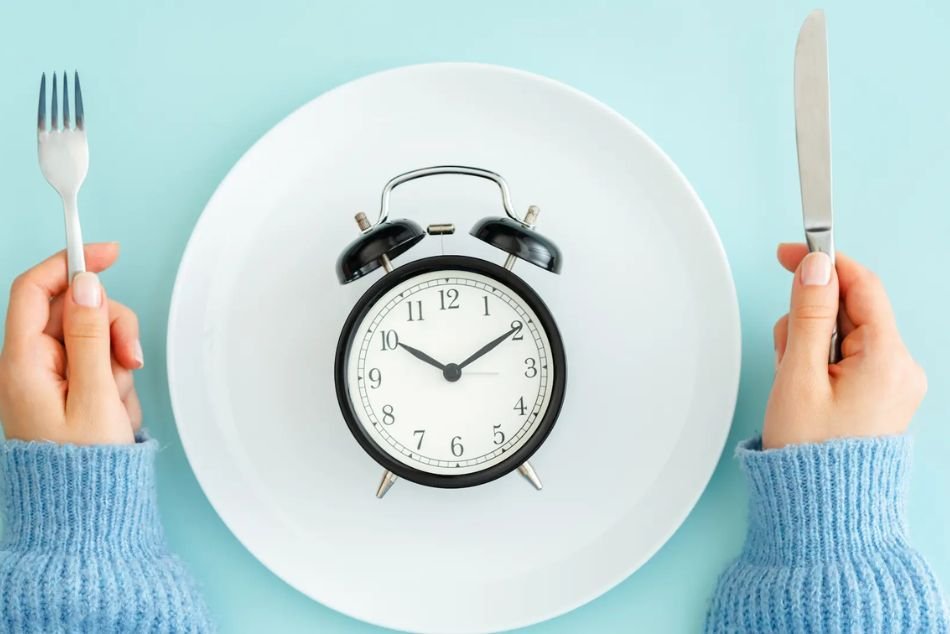Find Out Whether Women Should Do Intermittent Fasting or Not
Intermittent fasting has become a big topic in the fitness industry over the last few years, with many people saying it’s helped to contribute to their improved fitness and physique. However, there have been some questions about whether or not intermittent fasting is as successful for women. So, today, we’re going to introduce a bit about intermittent fasting, along with our thoughts on whether it works for women and how to get the most from it.

What Is Intermittent Fasting?
Intermittent fasting is one type of diet that involves going extended periods without eating over the course of 24 hours. It’s designed to give your body more time to burn through the calories from your last meal and then begin burning fat. So, the idea is that when you give your body a window when you’re not eating, it begins to burn fat that’s stored for energy more quickly and efficiently. Similarly, it gives the benefit of cutting down the time window in which you’re eating in. For instance, you’ll be less likely to have unwanted hunger pangs that lead to unhealthy snack eating. Hence, it will naturally consume fewer calories.
In general, in intermittent fasting, it’s suggested that you fast for between 12 and 16 hours a day. Let’s use the 12-hour one as an example. You might have your first meal of the day at 8 am, your last meal of the day at 8 pm, and then you fast for 12 hours overnight. With the 16-hour example, you could have your first meal at 10 am, your last meal at 6 pm, then fast overnight again.
Many people are now taking on this diet. However, if you have any existing health conditions, you should always consult a doctor before starting a new type of diet plan.
Does Intermittent Fasting Work for Women?
The studies around whether or not intermittent fasting for women works are mixed. Some studies suggest that intermittent fasting isn’t as beneficial for women as it can interrupt hormones and, therefore, bodily functions, including menstrual cycles. Other studies show that it can work as a short-term weight loss solution. However, it’s no more effective than eating in an average calorie deficit and fueling the body throughout the day.
The overall consensus is that intermittent fasting is not as beneficial to women and that it can lead to imbalances in the body over time.
Should Women Try Intermittent Fasting?
If you’re considering intermittent fasting, we’d recommend going to speak to your doctor. They know your medical history and could run some blood tests to make sure that you’re in a healthy position to try this type of diet, as well as provide guidance throughout.
If this isn’t something you want to do, then focusing on a calorie deficit while eating throughout the day will help you to give your body the fuel it needs consistently. You could take on a form of fasting, for example, not eating after 8 pm if you struggle to avoid snacking in the evening, just to put that extra barrier in place.
How to Do Intermittent Fasting Safely as a Women
As we’ve already mentioned, the best thing to do is speak to your doctor to make sure you’re healthy. However, Women’s Health has also provided guidance on how to do it safely, including the following things.
Eat the Right Foods When Your Fast Ends
When your fasting period ends, you need to nourish your body with a nice balanced meal to help replenish it with nutrient-dense foods. Focus on lean protein, nuts, whole grains, fruit, and vegetables to give your body what it needs.
Consider Your Exercise Schedule
Some people like to train without eating. Nonetheless, if you have a significant amount of time after your workout before you eat, it isn’t ideal. So, perhaps you should do your workout between 9 am and 10 am if your fasting window ends at 10 am.
Other people may prefer to work during the eating window for extra energy. However, if you like a morning workout, maybe you could throw on a loungewear set and head out for a walk first thing. If you are working out fast, just make sure that you remain safe by staying hydrated and reducing weights compared to when you train after eating.
Final Thoughts
The research on women and intermittent fasting does vary; the most important things to note are to speak with your doctor and listen to your body, as diets affect everyone differently, whether it’s the keto diet or carnivore diet, so don’t force yourself to do something that isn’t working for you.
Guest Post Written by Editorial Contributor Daisy Moss.






